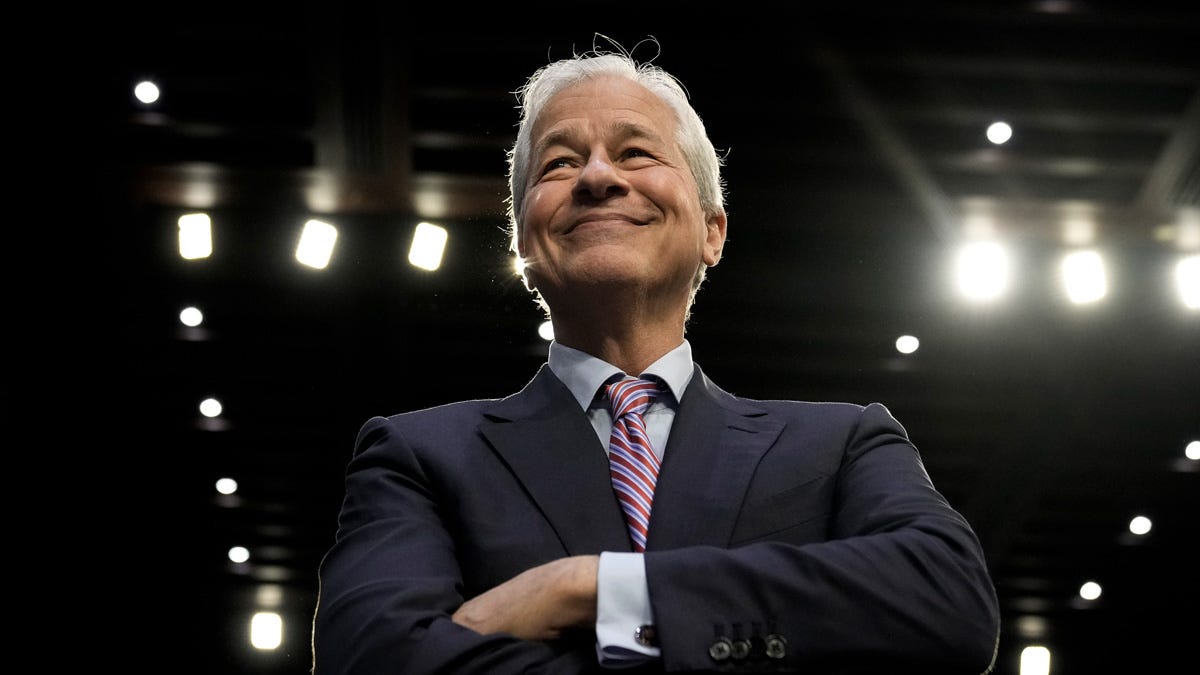Hello and welcome to the latest edition of Off to Lunch…
The TV show Succession took the world by storm with a look inside the fictional global media and entertainment conglomerate Waystar RoyCo. A pivotal and jaw-dropping moment in the show comes in the second episode of the final series when Brian Cox’s character Logan Roy tells his children, who have been vying for control of the company since episode one, that none of them are in line to take over.
Dramatic narratives and fictional fighting aside, succession planning is not an easy process, especially when a CEO has been in place for years. This is something JPMorgan now has to address. After 18 years at the helm of one of the world’s most influential financial institutions, Jamie Dimon has confirmed that JPMorgan is “on the way” with plans to find his replacement as CEO.
Succession is a concept that binds almost every business together because it’s something that is nigh on inevitable. Part of the difficulty focuses on the external hire versus internal promotion debate. During yesterday’s investor day, Dimon said that the decision is up to the company’s board but “there are actually some really great potential CEOs here”.
One of the things we often miss in succession planning is that it should be gradual and thoughtful, with lots of sharing of information and knowledge and perspective, so that it's almost a non-event when it happens.
Anne Mulcahy, former chairperson and CEO, Xerox
A survey of more than 1,500 business owners by accountancy firm Azets earlier this year found that just 9 per cent of businesses have succession plans fully integrated, while 6 per cent have given it no thought at all.
Examples of the cost of poor succession planning are abundant. From Philip Clarke succeeding Sir Terry Leahy as chief executive of Tesco in 2011, only to be ousted three years later, to the power struggle between Bob Iger and Bob Chapek at Disney.
The Harvard Business Review has done a great piece on the cost of poor succession planning and how to find your replacement, which you can read here.
I couldn’t leave the mention of Succession without ending on my favourite Roy quote.
You make your own reality. And once you’ve done it, apparently, everyone’s of the opinion it was all so f*cking obvious.
Podcast…
The latest episode of the Business Leader podcast looks into the story behind Manchester-based travel company Travel Counsellors and why it might be the company with the best reviews in the UK.
Steve Byrne, the long-serving chief executive, explains why customers and staff rate it so highly, why you may not have heard about the company until now, and details its ambitious plans for the future.
You can listen to the episode on Substack here, Spotify here and Apple here.
Other stories that matter…
1. UK voters are expecting tax hikes regardless of who wins the next general election, according to a survey by More in Common. The survey of 2,300 people found that 43 per cent expect rises under a Labour government, while 40 per cent feel that tax rises are inevitable if the Conservatives serve another term. You can read more here.
2. The spotlight is firmly on audit firms after research from a think tank found that they failed to raise the alarm in three-quarters of the cases where big companies went bust over the past decade. The Audit Reform Lab analysed the audit reports of the largest 250 publicly traded companies that collapsed between 2010 and 2022 and “raised serious concerns that auditors are not challenging enough”. You can read more here.
3. Self-driving cars will be around sooner than you think. The Automated Vehicles Act has been passed into law and could see autonomous vehicles on our roads as soon as 2026. The law comes two weeks after UK self-driving car AI company Wayve announced a £1bn funding round. You can read more here.
4. Another London-listed company could be snapped up by a stateside firm. After tabling three bids already, Nasdaq-listed Advanced Energy has upped its offer to take over XP Power in a deal worth £571m. You can read more here.
5. The man who inspired the famous Gordon Gekko character in the 1987 movie Wall Street has died. Ivan Boesky was a central figure in the 1980s insider trading scandals and is said to have told business students: "I think greed is healthy. You can be greedy and still feel good about yourself.” You can read more here.
And finally…
Elon Musk’s rules for productive meetings have been floating around since an email to Tesla employees was leaked in 2018, but they have gone viral again in the last few weeks. If you haven’t seen them, here are a few of Musk’s productivity recommendations:
– Excessive meetings are the blight of big companies and almost always get worse over time. Please get out of all large meetings, unless you’re certain they are providing value to the whole audience, in which case keep them very short.
– Get rid of frequent meetings, unless you are dealing with an extremely urgent matter. Meeting frequency should drop rapidly once the urgent matter is resolved.
– Walk out of a meeting or drop off a call as soon as it is obvious you aren’t adding value. It is not rude to leave, it is rude to make someone stay and waste their time.
– Don’t use acronyms or nonsense words for objects, software or processes. In general, anything that requires an explanation inhibits communication. We don’t want people to have to memorise a glossary just to function at Tesla.
– Communication should travel via the shortest path necessary to get the job done, not through the chain of command. The way to solve this is to allow free flow of information between all levels. If, in order to get something done between departments, an individual contributor has to talk to their manager, who talks to a director, who talks to a VP, who talks to another VP, who talks to a director, who talks to a manager, who talks to someone doing the actual work, then super dumb things will happen. It must be ok for people to talk directly and just make the right thing happen.
– In general, always pick common sense as your guide. If following a ‘company rule’ is obviously ridiculous in a particular situation, such that it would make for a great Dilbert cartoon, then the rule should change.
Thanks for reading. If you enjoy Off to Lunch then please share it with others and spread the word. If this newsletter was shared with you then please sign-up below to get Off to Lunch sent directly to your inbox








